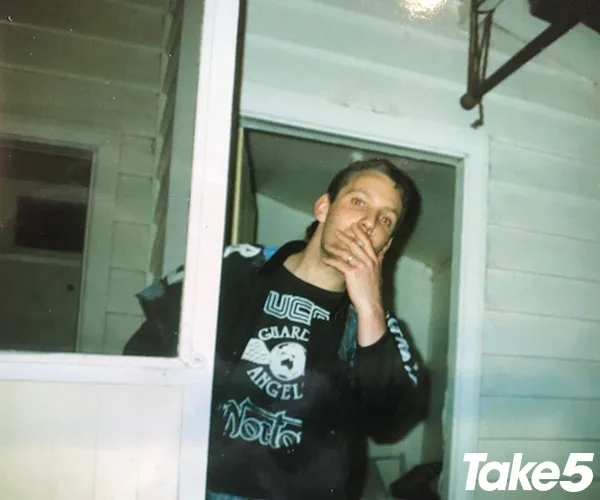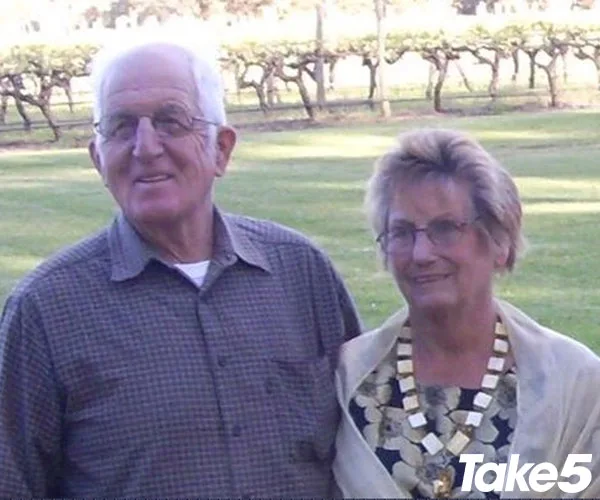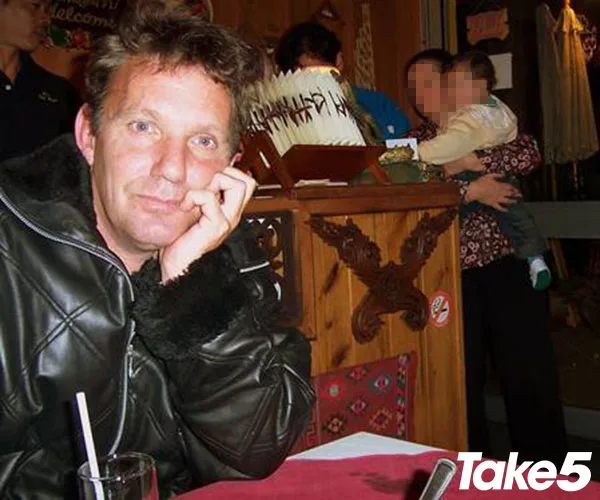Elayne Perry, 81 from Paxton NSW, shares her true life story:
The police officer who’d tracked down my son Rod spoke to me with a sympathetic voice.
“There’s certainly something not right about him,” he agreed. “But he’s just camping. He’s not breaking the law, so I’m afraid there’s nothing we can do. We can’t force him go to a psych unit.”
I sighed. It was the same old story.
Rod, 47, was schizophrenic and we’d been dealing with his erratic behaviour for years.
Sometimes, he just took off, hitching or driving around Australia.
I worried he’d run into trouble.
Piecing together where he was from his sporadic calls, I called police and mental health units wherever I thought he was heading.
“My son’s off his meds again and unstable,” I warned. “Can you please look out for him?”
Occasionally, a kind police officer or mental health worker called back.
But unless Rod was a danger to himself, or others, their hands were tied.
They had to leave him be.
It’s all I’d heard since Rod’s diagnosis when he was 16.
Back then I’d split with his dad and Rod lived with me.
He was always a reserved boy, but happy.
He had a real talent for hockey too, playing at state level.
But gradually, he started withdrawing from the world.
“He’s a lovely kid, but he rarely speaks,” his coach told me one day. “All he does is smile.”
I wondered if the pressure was getting to him.
He’d become very anxious.
Eventually, he dropped hockey and out of school.

Rod’s life was chaotic and I was always worried about him.
“I think I’m going mad, Mum,” he confessed after dinner one night.
“Oh, darling,” I sighed sympathetically.
I desperately needed to help him.
I got him an apprenticeship as a painter, but he couldn’t hold down a job because of repeated admissions to psych units.
In his twenties he was drifting; spending time on the road, living with me or in flats I’d arranged to encourage his independence.
By then I’d remarried to a wonderful man, Ken Perry.
He was charismatic and funny, a former Salvation Army preacher who’d run shelters for the homeless.
Thankfully, because he understood mental illness, he was sympathetic to our troubles.
If Rod called, broke and desperate, stuck somewhere thousands of kilometres away, Ken would drive there and bring him home.
He went out of his way to help and support Rod.
“I can’t thank you enough, love,” I always told him.
But over the years, the chaos of Rod’s life took a toll on Ken, 74.
We were living a peaceful life in Coomba Park, a tiny village on the NSW Mid-North Coast, when Rod, 50, came to stay with us temporarily after another stint on the road.
This time, Ken found it hard to cope.
“Why does he create such a mess?” he grumbled, glancing round the kitchen one day.
I had to admit, Rod just had to make a cuppa and the place was left looking like a bomb had hit it.
Ken also got irritated with him using his tools or going into the downstairs part of the house, where we had a tenant.

Me with Ken – he was such a kind and selfless man.
Rod wasn’t taking his meds and was neglecting himself.
I cooked for him every night just to make sure he ate.
One morning, I was getting ready to go to my nursing job, when Ken stormed out onto the back veranda where Rod was smoking.
“You’ve used the downstairs toilet again.
I told you not to,” he snapped.
“I haven’t broken the bloody law,” Rod shrugged.
Ken shook his head and walked away.
I went out to Rod to try to smooth things over.
“Ken’s an old man now and he’s finding it hard to cope,” I said. “Just telll him you’re sorry.”
Hoping things would settle, I headed to work.
Around lunch time, I called Ken.
He’d been mowing a neighbour’s lawn and was a bit puffed out.
“Are you okay?” I asked.
“I’m fine,” he replied.
We chatted for a while and I told him I’d see him later.
When I got home that afternoon, the house was quiet, like nobody was home.
I made a cuppa and wandered out to the backyard.

Rod would often go off his medication.
Then I stopped in my tracks.
Ken was face down in a garden bed under the back veranda.
“Ken!” I yelled, running to his side.
Even before I got to him I knew he was dead.
There was no blood, but he was so still.
Instinctively, I knew too that Rod had done this.
I was numb with shock as I rang triple 0.
An ambulance came, but there was nothing they could do for Ken.
The police arrived and said they’d found Rodney at a toilet block on the waterfront.
He’d resisted arrest and told police Ken had attacked him, they fought, and Ken was thrown over the veranda.
There were signs of a struggle, some pots and an ornament were broken.
The police said Ken landed head first and broke his neck.
I was devastated, and didn’t know what to think.
Rod could get agitated, but I’d never really considered him violent.
But somehow, I’d lost my husband of 29 years and my son had been charged with killing him.
Once he’d been assessed and was back on his meds, I visited him on remand.
I needed answers.
The Rod I knew, when he was well, wouldn’t have done this.
His illness had led him to this point.
“It was a terrible accident. I feel bad, Mum,” he sighed.
0My son, Rodney Ambrosius, pled guilty to manslaughter through self-defence.
His story was that after I’d left, Ken had come onto the veranda, ranting, ‘You’re not stopping here,’ and knocked him from his chair.
They fought.
Rod admitted he’d thrown Ken off the veranda.

The back deck of our home.
He was jailed for six years nine months with a non-parole of three years and six months.
I don’t think Rod intended to kill Ken.
But I probably won’t ever know exactly what happened that day either.
1We write regularly.
I just want someone to love and forgive me, Rod said recently.
Of course, I do.
He might have killed my husband, but a mother’s love is unconditional.
Rod’s now in a better mental state than he’s been since his diagnosis.
In jail, he has to take his meds and see a psychiatrist.
I’m desperately sad and angry that it’s only after killing Ken that he’s finally getting the treatment he needs – it’s what I’ve been begging for him for years.
If that’s not the sign the mental health system is broken, then I don’t know what is.
2If you or someone you know is struggling to cope contact Lifeline on 13 11 14 or visit their website.

